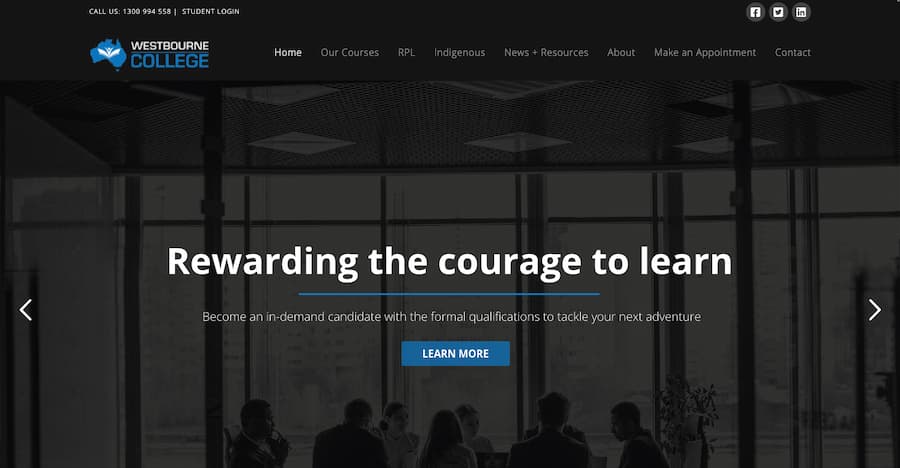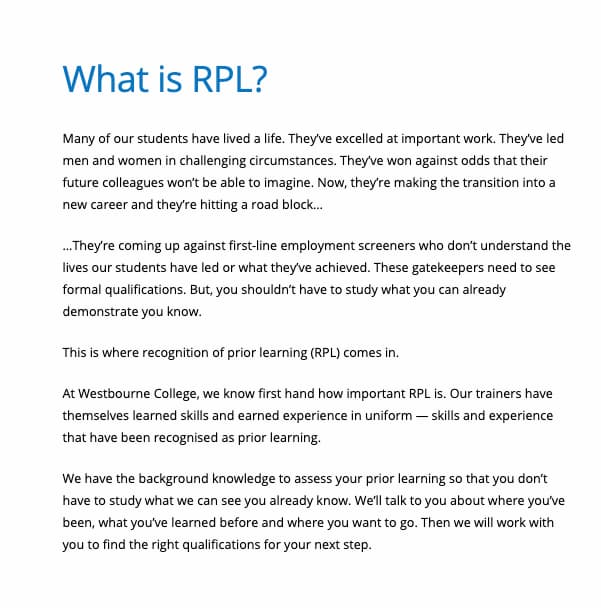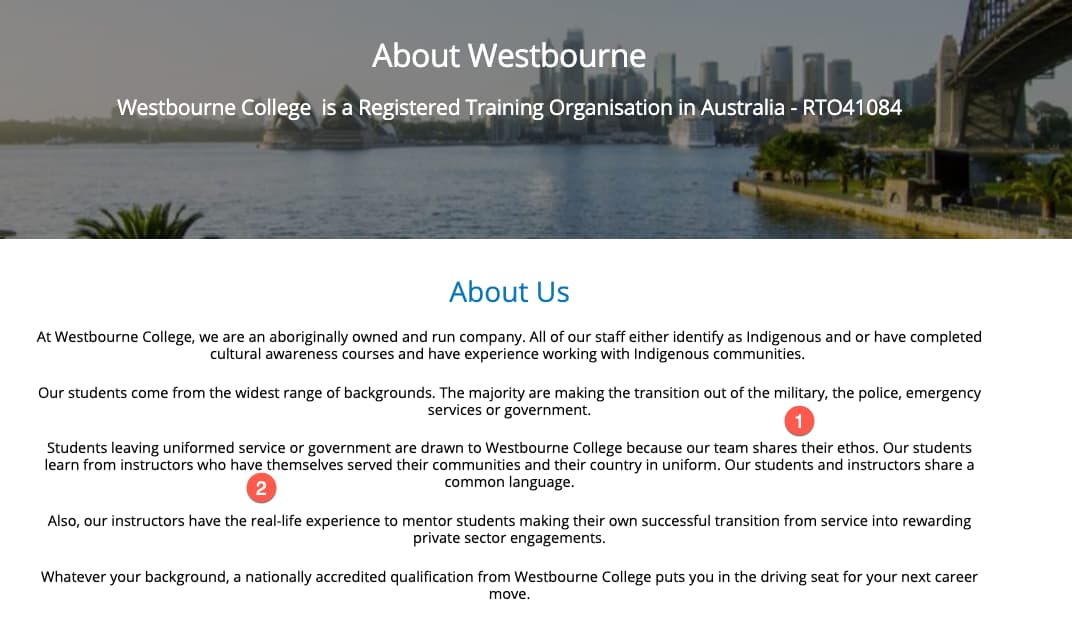Writing a website? Research is key…
Writer’s block isn’t fun. Imagine being paralysed in front of the blank page for hours, not knowing what to write. And you don’t have to be a professional copywriter to experience it. We’ve all put off writing something until the last minute. (And sometimes even later.)
That blank page can be intimidating, but there’s a reason direct response copywriters are less plagued by writer’s block than most people. That’s because a direct response copywriter would have:
- Done their research
- And thought through their approach.
Research is the most important principle of persuasive copy
The single goal of a copywriter is to write persuasively. It’s what makes copywriting central to conversion rate optimisation and direct response marketing. But you can’t be persuasive without knowing who is going to read your copy. Persuasion can only be achieved by the copywriting on your landing page if your copywriter understands:
- What prospects know about the problem the client solves
- What prospects secretly hope for
- What Google Analytics can tell us from how prospects are reading the client’s current website
- How prospects describe their own problems
- How the client is uniquely placed to make prospects’ lives easier
Research gives you the answer to those questions. That makes research the most important part of the entire copywriting process. Get the research and planning right and you’ll feel as though the words are writing themselves. That is why copywriting is 80% research and 20% writing.
What sort of research should a copywriter do?
The first question copywriters should ask themselves is who their target readers are. In order to write persuasive copy, copywriters need to paint a picture for themselves about what their target readers look like. That includes thinking about the target readers’ age, sex, location, political leanings and more. It’s why developing a client avatar is among the first modules in our online landing page copywriting course and our online course on writing a winning LinkedIn profile. We also have some free tips on identifying your ideal client.
Once copywriters establish who their target readers are, they need to know what their target readers really want. A copywriter’s research must delve deeper than what can be seen on the surface. Yes, your readers want a back scratcher because they have an itch, but why do they have the itch and why haven’t they been able to solve it before now?
It isn’t enough for copywriters to understand their readers, they need to understand their client’s business as well. What does their client’s product or service do? The more comprehensive a copywriter’s understanding of the client’s product or service, the more features they’ll be able to pitch to their target audience through their copywriting.
What are the benefits of the product or service? You’ve heard that people don’t buy features, they buy benefits. In truth, they buy both. The features and benefits of a product or service combine to make up the value. So a copywriter’s research has to consider both the features and benefits of the product or service they’re writing about.
The more research your copywriter is able to do, the greater the chance of coming across the “big idea” that will unlock your conversions.
Where to research your customers
Everybody knows what your business does, right? But what if you’re wrong? Or what if they have questions your marketing doesn’t answer?
All marketers and copywriters need to keep this simple fact firmly in their minds – Confused prospects don’t buy. People love the status quo, and they’re not likely to make changes in their lives unless you can convince them otherwise. But you won’t sound persuasive unless you know what your prospects are asking.
Fortunately, it’s easy to find out what your prospects want to know. There are a list of sites (link below) used by sophisticated marketers to research customers.
Take Answer The Public, for instance. You type in what you do and you get a wheel of questions people are asking online. When we typed in “copywriting” for instance, our potential customers want to know what is a copywriter, when they would use one, and whether it is worth it.

The best sites for copywriting research
You’ll see these sites recommended by copywriters, content writers and marketers time and again:
- KWFinder
- Answer The Public
- Also Asked
- Meltwater
- BuzzSumo (specifically the tools that help you find trending subjects)
Copywriting research can make your competitors irrelevant
Copywriting research has the power to make your competitors irrelevant if you know what you’re doing. There are three things copywriters need to know about their target market. However, said target market can’t tell copywriters the answer to those things, even if they’d like to. Those three things are:
- What prospects truly desire in life
- The group prospects want to belong to
- And the results they are hoping for when they buy something
But how will you know what those three things are? This is where research comes in. Your prospects may not be able to tell you what they want in a questionnaire, but what they want can be heard through online discussions, interviews and forums.
Copywriting research case study — Westbourne College
Putting this into context, let’s look at one of Taleist’s website copywriting projects, Westbourne College.

Westbourne College is an Australian education institution that teaches people diploma level skills. Their target market are people who have left uniformed services such as the police force, military, emergency services and border force. In their new lives, these students need formal qualifications that will enable them to be employed in the civilian world.
So how do we as copywriters know what’s important to this group of people? It starts with a lot of research. The first thing Taleist did was talk to the client as he was ex-police himself. That background gave him deep insight into this target market. Based on the client’s own experience, he revealed that this target market often experience a loss of community when they left the service.
This insight was reinforced through the online forums we explored that facilitated discussions between military and ex-military personnel. Most of them felt disconnected from the civilian world. They were unfamiliar with modern offices, and couldn’t relate to the life experience of other civilians. These ex-military people felt they were held back from getting a job because employers didn’t understand their unique experiences and accomplishments.
From the information we obtained in our research, we summarised the three things our target market wanted but couldn’t tell us.
- What they truly desired in life was respect for their accomplishments.
- The group they wanted to belong to was the group of people in gainful, stable employment.
- What they really hoped for was to feel wanted and useful again.
Taleist then had to translate those three things into copywriting.
The headline that Taleist came up with for Westbourne College was “Rewarding the courage to learn”. This was followed by a subheading…
Become an in-demand candidate with the formal qualifications to tackle your next adventure.
From the Westbourne College website. Copywriting by Steven Lewis.
The words in these headlines were not chosen at random. The target market were ex-military or police, so they were likely to be courageous, adventure-seeking people. Words like “courage”, “tackle” and “adventure” were deliberately picked to trigger a subconscious response in the target market. What these people desired most from our client was to be wanted again, so “in-demand” was another deliberately chosen phrase.

The copy on the website was designed to speak in a language the target audience understood. The copywriting includes sentences like…
“They’ve won against odds that their future colleagues won’t be able to imagine”
“They’re coming up against first-line employment screeners who don’t understand the lives they led or what they’ve achieved.”
These phrases were based on quotes found in online forums. Our target market were people who had led men and women through challenging circumstances and came out victorious. And we knew that they wanted respect for their achievements. Our copywriting signaled to our target market that we understood who they are and what they’ve accomplished.
Driving the point home by writing a convincing About Us page

Copywriting an About Us page is a particular skill, which is why we have a whole blog post on writing the perfect About Us page.
On Westbourne College’s About Us page, we wrote phrases like “Our team shares your ethos” and “Our instructors have served”. This language showed our target market that Westbourne College instructors identified themselves as part of the same group. The Westbourne College instructors were ex-uniformed services members themselves, and they had achieved success in civilian life. That meant the instructors understand what our prospects had gone through and what they were looking for.
Proof comes in many forms. The words you choose are one type of powerful proof, and it’s the research that tells you what words and phrases will have most impact. (For more, see our list of 39 types of copywriting proof that we use to make websites more convincing and 11 ways to use copywriting to build trust.)
In the case of Westbourne College, the target market comprises doers, people who take action in their lives. So we used action-focused language in our copy to better relate to those people. The promise made to these people was that Westbourne College will mentor them so that they would achieve a successful private sector career. The instructors understood our target market, respected their accomplishments and could move them into the group they wanted to belong to – the group that is successfully employed.
The Westbourne College website is a clear illustration of how you can make your competitors irrelevant when you drill into the research to tap into what your customers desire, the group they want to be part of and the results they really want. Prospects will buy from the supplier offering those things even when everything else appears to be identical. That’s because the supplier is not just selling a product or service; the supplier is selling prospects what they desire most.
Research is the key that unlocks that blank page every time
Persuasive copywriting starts with asking the right questions. The answers you get gives you an insight into the minds of the people you want to convince. It allows you to see things about the business that even the business owner may not be aware of. So before you start writing, make sure you have a research strategy as part of your copywriting process.
Here at Taleist, we have a seven-stage copywriting process. Six of those steps are research. And it’s through that research that we have increased conversion rates by as much as 433% and doubled the quality of the leads.
If you are looking to choose the right agency for your website copywriting, we’d love to hear from you.
Copywriting advice referenced in this post
We’ve covered plenty of ground in this post, so to save you going back through the post to find the good links, we think you should read…
- Six Shortcuts to Persuasive Copywriting: Robert Cialdini’s Principles of Influence
- How to Write the perfect About Us page
- 39 types of copywriting proof
- 11 ways to use copywriting to build trust
- How to choose the right website copywriter
- The copywriter’s guide to lead generation
And if you’re ready to level-up your copywriting, you should check out our popular online courses…

AI Copywriting Training: The No-Hype Guide To Supercharging Your Website, Landing Pages, Emails, Social Media and Everything Else
The no-hype guide to using AI copywriting to spare yourself from the battle with the blank page. Write better web pages, blog posts, social media posts and email newsletters.

Being Human — The Email Newsletter Formula
Successful email newsletters get opened, read and clicked. Build that relationship with your email newsletters.

SEO Content Marketing
Ranking your website and blog posts in Google brings in free traffic. Find out how to get your site to page one.

Make Your Business Irresistible
Discover a proven formula for nailing what makes your business uniquely appealing to customers.

Winning At LinkedIn
The 2024 numbers for LinkedIn are staggering. Discover how to get your share of the business being done.

Turn website visitors into customers
You’ve attracted a visitor to your website. Discover how to get them to take action before they slide away again.

Win Business and Influence Prospects With Social Proof
Nothing will increase your conversion rate like social proof done well. Go beyond lacklustre testimonials and convert.

Make them want you with a perfect about us page
Once they believe they want what you have, they need to believe you can deliver it. Create that confidence.

The Cheat’s Guide to Successful Email Marketing
An engaged mailing list buys more. Creating that engagement doesn’t have to be hard.

